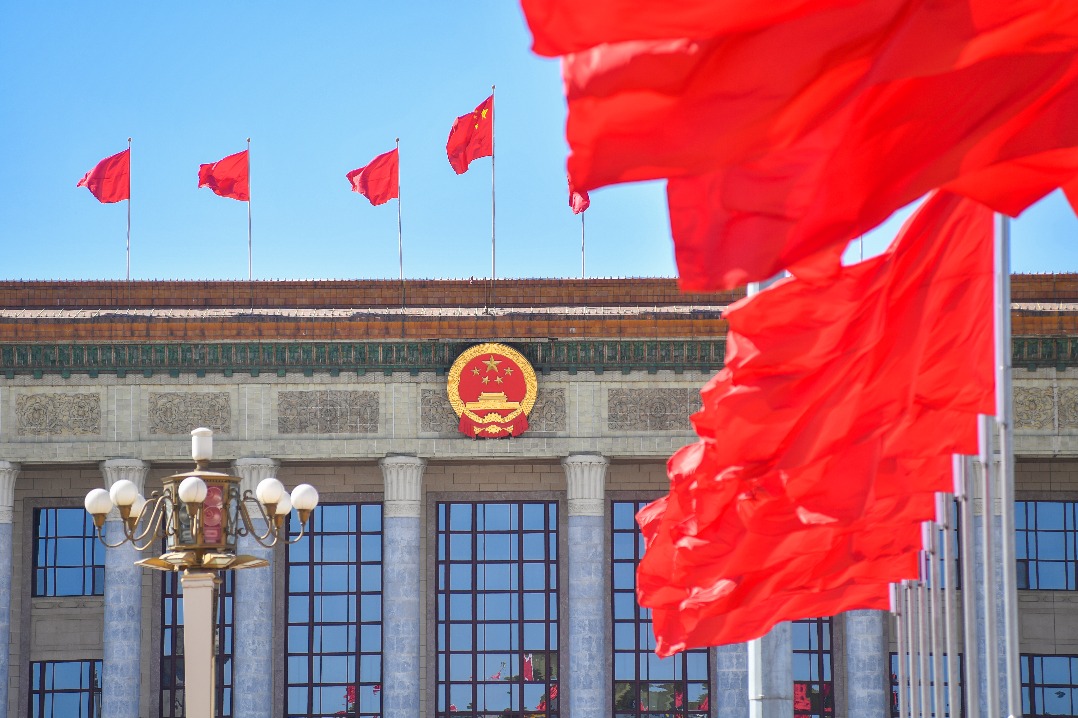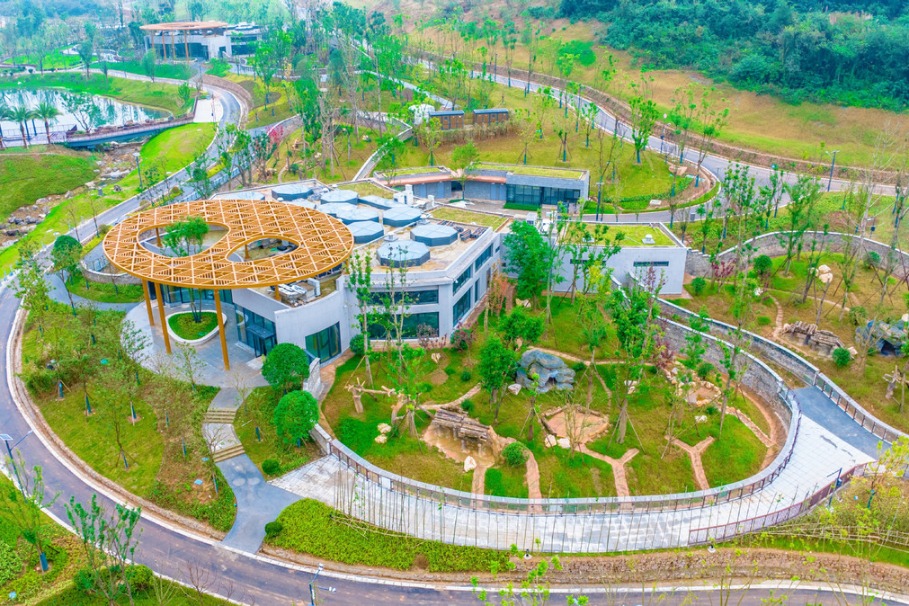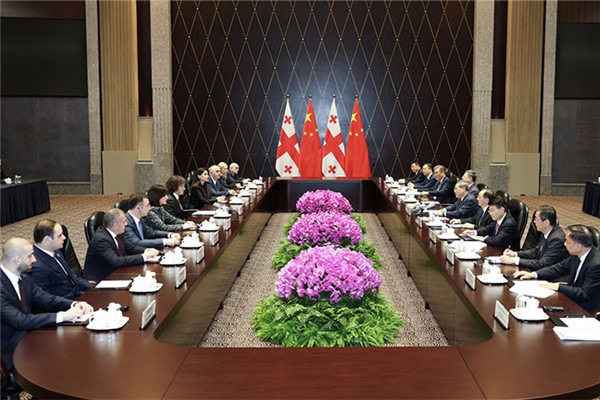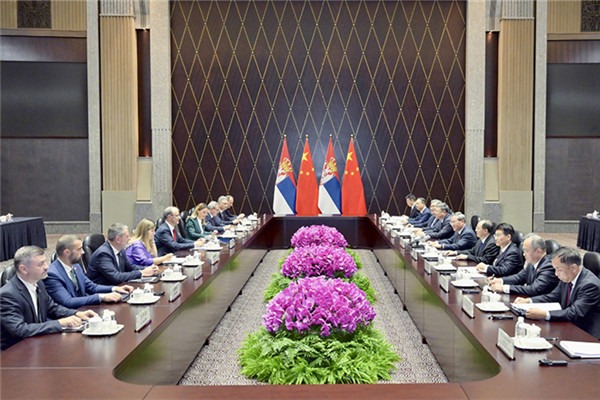Experts promote raising?awareness to boost HPV?vaccination

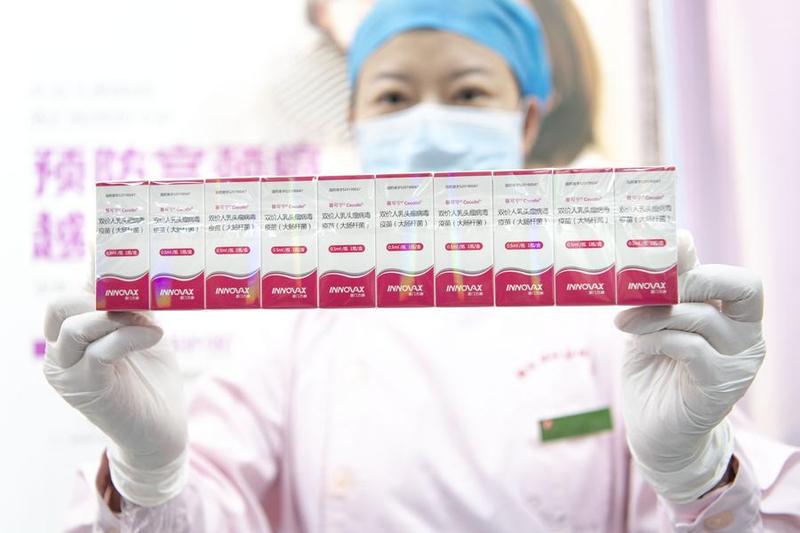
Increasing the coverage rate of the human papillomavirus vaccine in China requires dispelling public misconceptions and enhancing awareness of disease prevention, experts said.
Human papillomavirus, or HPV, is the leading cause of cervical cancer, a life-threatening disease that claimed 350,000 lives worldwide in 2022, with China accounting for 16 percent of the deaths.
China will include a vaccine to treat HPV in the national immunization program starting Nov 10, according to a new policy issued by seven government agencies on Oct 30. Free vaccination with two doses of a bivalent HPV vaccine, given six months apart, will be provided for girls age 13 and above who were born after Nov 10, 2011.
"It's the first time the target vaccination age has been extended from under 6 years old to adolescents. Moreover, it is the first vaccine in the program aimed at preventing a malignant tumor caused by chronic infection, with a specific focus on women's health," said Du Heng, principal officer at the Gates Foundation's China office, a major partner in HPV vaccine-related research. "The full outcomes of this vaccination effort will take 20 to 30 years to become apparent, making the decision challenging yet extraordinarily significant."
Prior to the announcement, 18 provincial-level regions in China provided free HPV vaccination for eligible girls as of June, targeting those between the ages of 9 and 14, benefiting about 5 million girls annually, according to a white paper released by the State Council, China's Cabinet, on Sept 19.
In Beijing, for example, girls at 7th grade of junior high schools age 9 and above can receive free domestically developed bivalent vaccines that protect against the two most common HPV strains, types 16 and 18, which cause 70 to 80 percent of cervical cancers.
A staff member at the Taiyanggong Community Health Center in Beijing said students must arrange the service through their schools. Since notifications were sent in September, the center has seen continuous visits from girls accompanied by their parents.
"Sexual transmission is the primary route of HPV infection, which is why we recommend young women get vaccinated against HPV before their first sexual intercourse," said Tan Xianjie, chief physician at the Gynecological Cancer Center of Peking Union Medical College Hospital in Beijing.
However, concerns persist among some parents.
Li Yun (not her real name), mother to a first-year junior high school girl in Beijing, said the school informed parents in September that students could voluntarily receive either free or paid HPV vaccines at a school-arranged time.
She chose the imported nine-valent vaccine for her daughter, priced at about 1,400 yuan ($196.5), believing it to be "more reliable".
When she arrived at the health center on a weekend afternoon, only three girls were waiting. "I talked with two parents in my daughter's class who refused the vaccination," she said. "One said it's not necessary as the child is too young and will not have sexual behaviors. Another worried that too many vaccinations may harm the child's health."
Li said she viewed the vaccination as an added precaution to safeguard her daughter's future. Her daughter experienced no side effects.
In Shanghai, girls age 9 to 14 had the lowest rates of first-dose HPV vaccination among all age groups from 2017 to 2024, at 14.1 percent, according to a paper published in the Chinese Journal of Epidemiology on Oct 17.
Qiao Youlin, a professor at the School of Population Medicine and Public Health at Peking Union Medical College, said the difficulties in promoting the national immunization program for HPV vaccines are temporary and will improve over time as health awareness increases.
"In some economically developed regions, people are willing to pay for imported nine-valent HPV vaccines, which is perfectly fine. As long as they get vaccinated, protection can be established," he said. "From the national perspective, the goal is to safeguard the interests of as many people as possible and ensure health equity within capacity, which is why the free domestic bivalent HPV vaccine is currently provided."
He added that although nine-valent vaccines cover more HPV types than bivalent vaccines, the latter already protect against the most dangerous categories. "The most urgent task at present is to vaccinate as early as possible," he said.
"Incorporating the nine-valent vaccine into the immunization program still faces challenges, as there is currently only one domestic company producing it, making the price relatively high," he added. "If more companies start producing it in the future, there will be room for price negotiations."
Qiao noted that regions abroad with high HPV vaccination rates all rely on school-based vaccination programs. "China is a highly organized society, and school-based vaccination can play a significant role in driving uptake," he said.
Zhao Fanghui, director of the Cancer Epidemiology Department at the National Cancer Center and Cancer Hospital, Chinese Academy of Medical Sciences, said that in some underdeveloped areas, people can only access vaccines through government support. She highlighted how including HPV vaccines in the national immunization program promotes health equity across the country.
She added that the benefits of vaccination may not become apparent for more than a decade, which may be why some parents do not take it seriously.
"As people hold more open attitudes toward sexuality today, some individuals may engage in sexual activity at a relatively early age, sometimes without their parents' knowledge," Zhao said.
It is often during gynecological checkups that adult women discover the infection, causing panic. "By then, it is already too late to say they want to get vaccinated," she said. "If the infection develops into cancer, the patient may face a hysterectomy or radiotherapy and chemotherapy."
The World Health Organization has set a global target to ensure that 90 percent of girls globally receive full vaccination against HPV by the age of 15 by 2030, as part of its efforts to eliminate cervical cancer.
"In China, the free vaccination policy has covered many eligible girls, which is an inspiring progress," Tan said. "Existing data show that the HPV vaccine is safe, and its protective effect can last for at least 10 years. But even after completing the full dosage, regular cervical cancer screenings are still recommended."
He added that men's role should not be neglected, as their HPV infection rate is as high as 45 percent, with most showing no symptoms.
"Sexual health is a shared responsibility of both parties," Tan said. "Both men and women should understand the risks of HPV infection and take appropriate protective measures. This is not only being responsible for oneself, but also for one's partner."
"Eliminating cervical cancer is not only a medical goal but also a shared responsibility of society as a whole," he added. "Through enhanced scientific awareness and joint actions, this goal is gradually becoming a reality."
- Experts promote raising?awareness to boost HPV?vaccination
- Haikou intl airport launches new 24-hour direct transit policy
- China-Laos international passenger line launched
- Beijing receives climate award at COP30 Local Leaders Forum
- Natl fire safety month promotes public safety awareness, risk prevention
- China reforms research review to boost young university staff


















